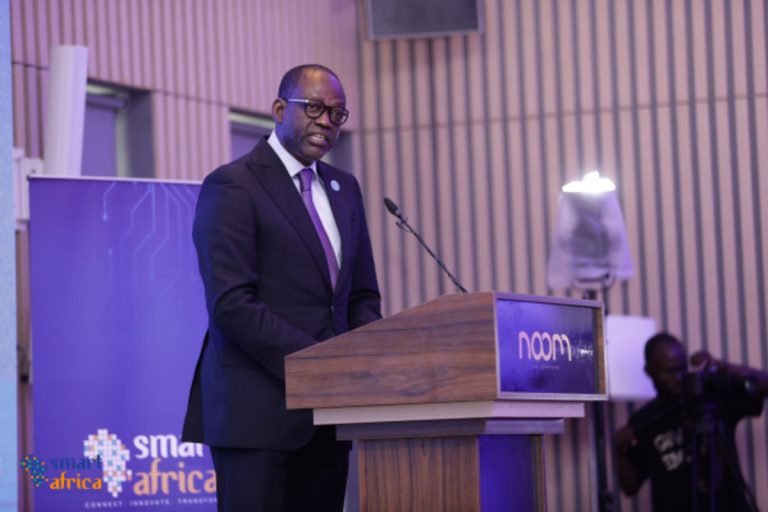🎧 Listen to This Article
A defining moment in Africa’s journey toward digital fiscal sovereignty unfolded this week, as tax authorities, finance ministers, and international stakeholders gathered in Dakar to confront one of the continent’s most pressing fiscal challenges: how to tax the rapidly expanding digital economy in a way that is equitable, efficient, and future-ready.
Held on April 15–16, 2025, and co-organized by the African Capacity Building Foundation (ACBF) alongside Senegal’s Ministry of Finance and Budget and the Ministry of Economy, Planning and Cooperation, the conference was more than another policy gathering. It marked a strategic pivot — a recognition that Africa must no longer remain a passive consumer in the global digital marketplace, but a proactive fiscal architect of its digital destiny.
Why Digital Taxation Matters Now
The digital economy — from e-commerce and fintech to social platforms and digital services — has surged across Africa, often outpacing regulation. Global giants extract value and data from millions of African users, yet pay minimal tax, exploiting gaps in national tax codes and international frameworks.
This structural mismatch is not new. But what has changed is Africa’s coordinated will to act. As Cheikh Diba, Senegal’s Minister of Finance and Budget, opened the summit, his message was clear: Africa cannot achieve fiscal independence without mastering digital taxation.
The presence of senior officials from Benin, Cameroon, Kenya, Ghana, Nigeria, and institutions like the African Union (AU), ATAF, WATAF, the African Development Bank (AfDB), and even Finland’s Ministry for Foreign Affairs reflects an alignment of priorities: taxing the digital economy is no longer optional — it’s existential.
Key Takeaways and Strategic Implications
1. A Call for a Harmonized Digital Tax Strategy
One of the summit’s loudest takeaways was the urgent need for continental coherence. Fragmented tax regimes create inefficiencies and allow large digital multinationals to engage in jurisdictional arbitrage. As Jean KONE, Director General of Taxes and Domains in Senegal, aptly noted: “We must pool practices and expertise to design a solid, common mechanism for taxing digital companies.”
→ Long-term implication: Expect growing momentum toward an African-wide digital tax framework, potentially under AU leadership — one that mirrors the OECD’s global minimum tax architecture but tuned to Africa’s realities.
2. Capacity Building is Not Optional — It’s Foundational
Across several panels, experts stressed that no digital tax regime can succeed without skilled personnel, modern audit tools, and cross-border investigative capacity.
→ Actionable Insight: Governments must invest in upskilling tax administrations, leveraging regional institutions like ATAF and the ACBF to build a shared curriculum and digital audit technology infrastructure.
3. Uncovering Africa’s Untapped Digital Revenue
The digital economy is full of uncollected revenue streams: influencer marketing, app stores, online betting, digital ads, virtual currencies. Most African tax codes weren’t designed to handle them.
→ Policy Solution: Adopt digital-specific nexus rules and withholding taxes, while modernizing VAT systems to capture cross-border B2C services. Ghana’s example with digital VAT could be a template.
4. Peer Learning and Regional Collaboration as Catalysts
The conference’s most understated, but vital, theme was peer learning. Panels weren’t just speeches — they were laboratories for co-creating solutions. The collaboration between ATAF, WATAF, Tax Justice Network Africa (TJNA), and others shows that shared African knowledge is now a force multiplier.
Looking Ahead: Is Africa Ready to Lead?
The digital tax debate has long been dominated by OECD and G20 narratives. But this conference revealed a growing intellectual and strategic confidence within Africa. The continent is not merely catching up — it is carving out its own approach, one grounded in its unique development needs and sovereignty goals.
Africa’s future tax regimes will not just be about raising revenue — they will be about rebalancing economic power, retaining value, and financing homegrown development.
If the Dakar conference becomes a catalyst for regional action and legislative modernization, it could mark the start of a continental fiscal awakening.
For further details, clarification, contributions, or any concerns regarding this article, please contact us at editorial@tax.news. We value your feedback and are committed to providing accurate and timely information. Please note that our privacy policy will handle all inquiries



